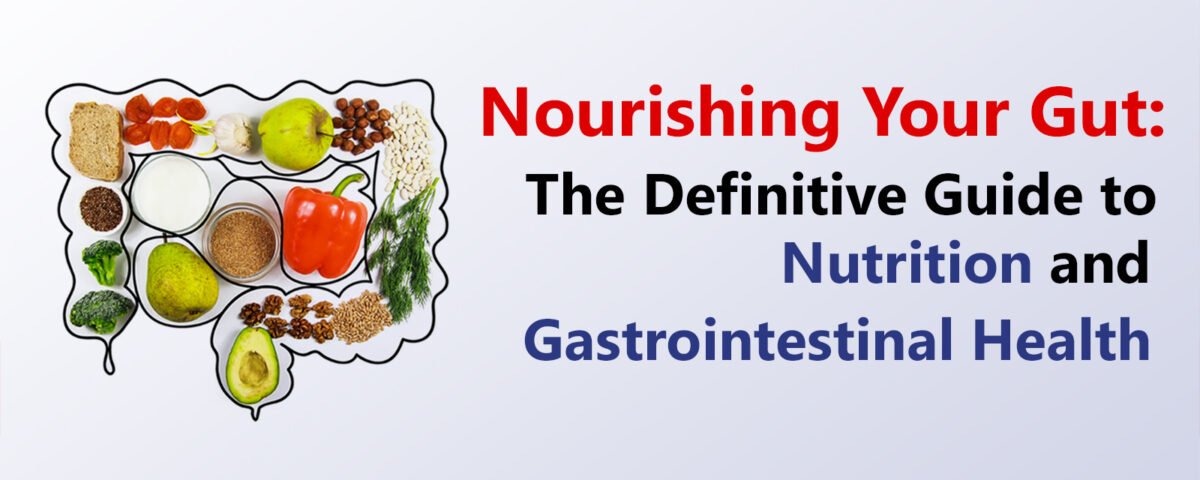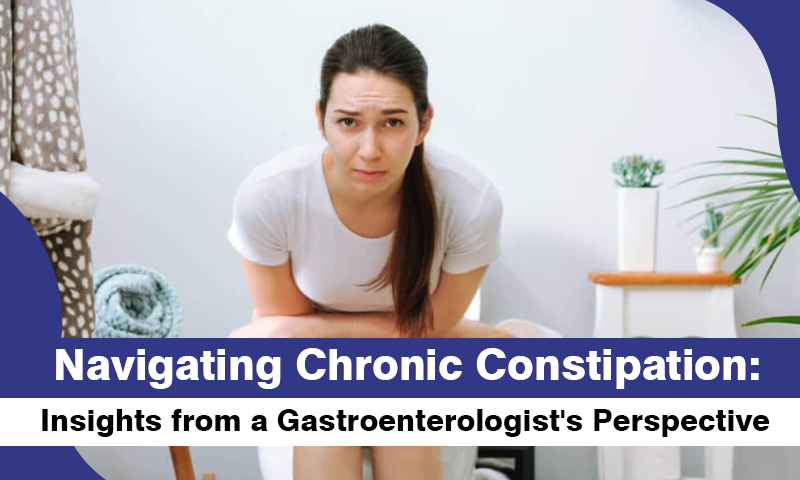Nourishing Your Gut: The Definitive Guide to Nutrition and Gastrointestinal Health

The Gut-Brain Connection: Navigating Digestive Health for Mental Well-being
November 13, 2023
A Comprehensive Guide to Gastrointestinal Conditions
December 12, 2023In our fast-paced lives, where food choices are often dictated by convenience, the significance of nutrition cannot be overstated. Beyond merely fueling our bodies, nutrition plays a pivotal role in maintaining overall health and well-being, influencing everything from nutrient absorption to bowel regularity. This blog seeks to explore the intricate connection between dietary choices and gastrointestinal function, shedding light on how the foods we consume impact the complex processes within our digestive system.
Basics of a Gastrointestinal-Friendly Diet
A gastrointestinal-friendly diet goes beyond calorie counting, involving a holistic approach to eating with a variety of food groups providing essential nutrients. A balanced diet rich in fruits, vegetables, lean proteins, whole grains, and healthy fats forms the foundation for supporting digestive health. Each component contributes to the harmonious functioning of the digestive system, from nutrient absorption in the small intestine to fiber-rich foods promoting regular bowel movements.
Dietary Considerations for Specific Gastrointestinal Conditions
IBD-Friendly Diet:
Individuals grappling with the challenges of Inflammatory Bowel Disease (IBD) face unique dietary considerations. Our IBD-friendly diet section offers a detailed breakdown of foods to include and avoid, considering the impact on inflammation and symptom management. Practical tips for managing nutrition during flare-ups, such as opting for easily digestible foods and staying hydrated, empower individuals to navigate the nutritional complexities of IBD.
GERD Diet:
Gastroesophageal Reflux Disease (GERD) demands a nuanced approach to diet. We delve into specific foods that may trigger reflux and those that can provide relief. Lifestyle changes, including meal timing and postural considerations, are discussed alongside dietary adjustments to effectively manage GERD symptoms. By understanding the connection between dietary choices and reflux episodes, individuals can make informed decisions to enhance their quality of life.
IBS Diet:
Irritable Bowel Syndrome (IBS) responds favorably to dietary modifications, with the low-FODMAP diet emerging as a valuable tool. This section provides a comprehensive guide to the low-FODMAP diet, outlining suitable food choices and alternative dietary strategies for managing IBS symptoms. By tailoring nutritional choices to individual sensitivities, individuals can take an active role in alleviating IBS-related discomfort.
Nutritional Support for Liver and Pancreatic Health
The liver and pancreas, integral to the digestive process, require specific nutritional support. We explore foods and supplements that promote liver health, emphasizing the importance of a balanced diet in preventing liver disorders. Dietary considerations for individuals managing pancreatic disorders are discussed, providing insights into maintaining optimal pancreatic function through nutrition.
Importance of Hydration
Adequate water intake is often overlooked but is fundamental to digestive function. This section elucidates the role of hydration in supporting processes such as digestion and nutrient absorption. Practical tips for staying well-hydrated, including the benefits of herbal teas and infused water, are shared to encourage readers to make hydration a conscious part of their daily routine.
Impact of Probiotics on Gut Health
The gut microbiome, a diverse community of microorganisms in the digestive tract, plays a crucial role in overall health. This section explains how probiotics contribute to a healthy gut microbiome, promoting microbial balance and supporting various aspects of digestion. Sources of probiotics, including fermented foods and supplements, are explored alongside potential benefits, empowering readers to make informed choices for gut health.
Recipes for Digestive Wellness
Putting theory into practice, we provide a collection of simple and nutritious recipes specifically designed to support gastrointestinal health. Emphasizing easy-to-digest and gut-friendly ingredients, these recipes cater to various dietary preferences and restrictions. From soothing soups to fiber-rich salads, these dishes offer a flavorful way to integrate digestive wellness into daily meals.
Myth-busting Section
Misconceptions about diet and digestive health abound. In this section, we address common myths with evidence-based information, empowering readers to distinguish between fact and fiction. From debunking the "avoid all fats" myth to clarifying the role of gluten in digestive health, this myth-busting segment aims to provide clarity and dispel misinformation.
Tips for Healthy Eating Habits
Beyond the foods we choose, how we eat matters. Mindful eating practices are essential for better digestion. This section offers practical tips for cultivating healthy eating habits, including the benefits of mindful chewing, setting a peaceful eating environment, and recognizing hunger and fullness cues. Strategies for managing portion sizes and avoiding overeating are also discussed, encouraging a balanced and conscious approach to meals.
As we conclude this comprehensive guide, let's underscore the pivotal role of nutrition in maintaining optimal gastrointestinal health. For those seeking expert guidance in Gujarat, consider consulting with the Best Gastroenterologist in Gujarat Dr. Chokshi's expertise and commitment to digestive health make him a trusted partner on your journey to well-being. Remember, the path to gastrointestinal health begins with informed choices, and with the right guidance, each meal can be a step toward a healthier, more nourished you.


